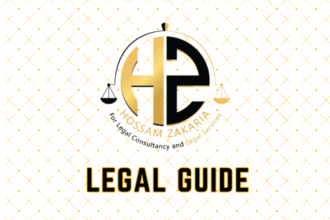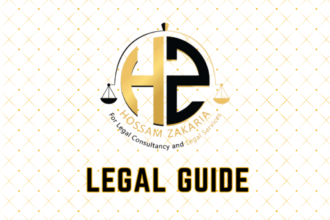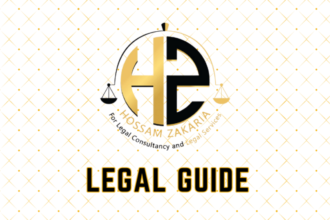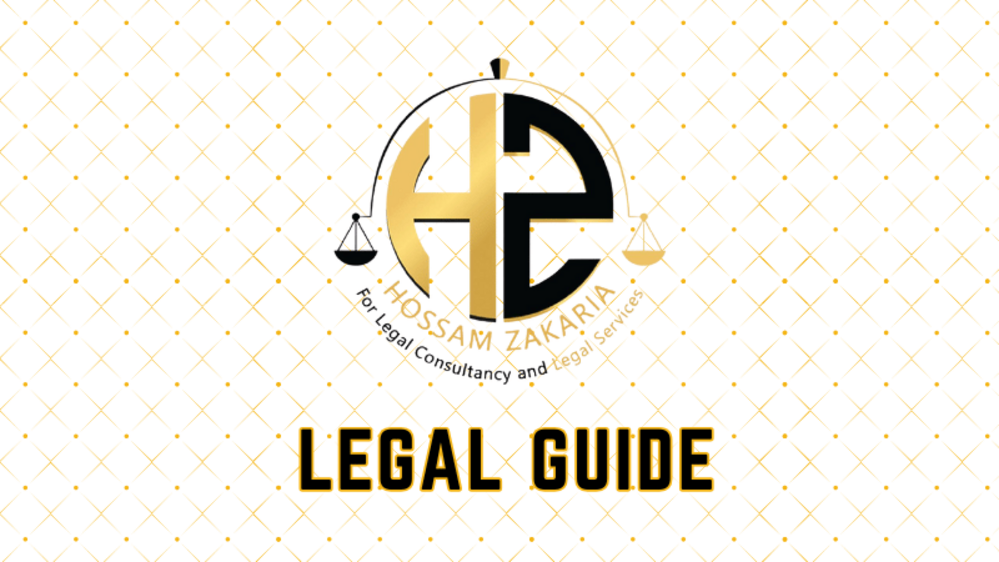Introduction: The Evolving Landscape of Aviation Law in Qatar
As Qatar continues to enhance its position as a global aviation hub, legal frameworks governing the sector are undergoing substantial transformation. The upcoming period into 2024 and beyond is marked by changes in international compliance demands, new domestic regulations, and a keen focus on innovation and risk management. For UAE-based businesses, executives, HR managers, and legal professionals engaged in aviation dealings with Qatari counterparts, staying informed about current and future aviation legal requirements is more vital than ever. This comprehensive guide delivers authoritative analysis, practical consultancy advice, and the strategic insights necessary for compliant and proactive participation in Qatar’s dynamic aviation sphere.
Table of Contents
- Overview of Qatar’s Aviation Law Architecture
- Key Legal Updates in 2024 and Beyond
- Regulatory Authorities and Their Jurisdictions
- Licensing and Operational Requirements
- Safety, Security, and Legal Compliance
- International Conventions and Airspace Management
- Data Protection and Digitalization in Aviation
- Liability, Insurance, and Dispute Resolution
- Risks of Non-Compliance and Penalties
- Strategic Consultancy Guidance for UAE Stakeholders
- Case Studies and Practical Applications
- Conclusion and Forward-Looking Perspectives
Overview of Qatar’s Aviation Law Architecture
Qatar’s aviation legal framework is primarily founded on Law No. 15 of 2002 (the Civil Aviation Law), supplemented by an evolving network of Cabinet Decisions, Ministerial Decrees, and regulatory guidelines in response to international convention obligations. In the context of the Gulf Cooperation Council (GCC) and its interplay with the UAE, these statutes govern not only commercial flight operations but also aircraft registration, safety mandates, and the engagement of foreign entities in Qatari airspace—a key concern for UAE stakeholders involved in cross-border aviation projects.
Evolution of Qatar’s Aviation Legislation
| Period/Tier | Key Frameworks/Regulations | Application |
|---|---|---|
| Pre-2010 | Civil Aviation Law No. 15/2002 | Fundamental principles; state sovereignty |
| 2010–2019 | Amendments to Law No. 15, ICAO compliance regulations, security decrees | Alignment with international norms |
| 2020–2023 | Ministerial Circulars on digitalization, data protection, pandemic response | Modernization, crisis management |
| 2024 and Beyond | Expected: Enhanced cybersecurity laws, e-freight, carbon reduction Cabinet Resolution (anticipated) |
Innovation-driven, sustainability, automation |
Why This Matters for UAE Stakeholders
With the proliferation of joint ventures and growing passenger and cargo traffic between the UAE and Qatar, understanding Qatar’s aviation regulatory environment has direct operational, risk, and strategic implications for UAE businesses and legal practitioners. The depth and pace of legal updates in Qatar are also influencing broader GCC aviation governance—a trend worth careful monitoring.
Key Legal Updates in 2024 and Beyond
The year 2024 marks a tipping point for Qatar’s aviation sector, responding to trends such as digital transformation, environmental sustainability, and post-pandemic resilience. The following legal updates are especially notable:
Summary of Legal Changes
| Area | Previous Law | 2024 & Beyond Update |
|---|---|---|
| Electronic Documentation | Physical mandates | Acceptance of digital/e-freight documentation (Cabinet Resolution, anticipated) |
| Cybersecurity | No dedicated aviation provision | Anticipated sector-specific cybersecurity protocols |
| Green Aviation Compliance | General ICAO obligations | Enhanced carbon offset and reporting (expected, QCAA Circular 6/2024) |
| Passenger Rights | ACI standards referenced | Alignment with newer IATA Passenger Rights code |
| HR and Labour Mobility | Standard bilateral recognition | Streamlined processes for UAE-Qatar crew licensing and employment (pending joint MOU) |
Practical Implications for UAE Entities
For UAE airlines, ground handlers, and service providers operating in or with Qatar, these reforms mean immediate attention to compliance workflows, digital infrastructure, and contractual arrangements. Legal counsel must be engaged early to ensure contracts, staff mobility agreements, and data protocols reflect the new legal realities to avoid unintended breaches or disputes.
Regulatory Authorities and Their Jurisdictions
The Qatar Civil Aviation Authority (QCAA)
The QCAA serves as Qatar’s central aviation regulator, overseeing certification, inspections, incident investigations, and policy implementation. For UAE-based firms, the QCAA’s interaction with the UAE General Civil Aviation Authority (GCAA) is particularly pertinent for approval processes and reciprocal recognition of permissions.
Supporting Regulatory Bodies
- Ministry of Transport and Communications (MoTC): Air navigation, infrastructure.
- Qatar Airspace Control Board: Airspace management and security.
- Customs and Immigration: Border checks and goods control at Hamad International Airport and other points of entry.
- International Organizations: ICAO, IATA guidelines as referenced in domestic law.
Jurisdictional Considerations
Qatari law commonly prevails for incidents within its territory. However, due to frequent cross-border activities and co-branded operations between UAE and Qatari airlines, robust knowledge of conflict of law principles is essential, especially in contracts, insurance, and dispute management.
Licensing and Operational Requirements
Aircraft Operation, Registration, and Leasing
- Aircraft Registration: Governed by Part II of Law No. 15/2002, all aircraft operating in Qatar must be registered with the QCAA. The forthcoming electronic registry (QCAA Circular 5/2024) will digitalize submissions.
- Leasing and Charter: Foreign lease arrangements are rigorously scrutinized. UAE lessors must verify QCAA preferences and ensure lessor-liability language aligns with local norms.
- Licensing for Crews and Operators: Crew licenses from GCC states (including UAE) may be recognized on a reciprocal basis under recent bilateral initiatives, though formal QCAA endorsement is required.
Comparing Old and New Approaches
| Aspect | Pre-2024 Approach | 2024+ Approach |
|---|---|---|
| Aircraft Registration | Manual, paperwork-intensive | Digital registry platform (application and status tracking) |
| Crew Licensing | Periodic renewals in person | E-licensing system, cross-border recognition (pending MOU) |
| Leasing Oversight | Broad discretion by QCAA | More transparent guidelines (expected QCAA Directive 2/2024) |
Consultancy Strategy Recommendations
- Verify all documentation and licenses for digital eligibility; transition legacy paperwork promptly.
- Maintain dual compliance plans (UAE and QCAA) for all operational agreements.
- Engage legal counsel for end-to-end review before initiating or renewing aircraft leases or service contracts.
Safety, Security, and Legal Compliance
Regulatory Framework
Qatar’s aviation safety rules conform to ICAO Annex standards. The QCAA issues Technical Regulations, which are routinely updated to reflect new safety protocols, ranging from emergency preparedness to incident reporting.
Current Safety Obligations
- Mandatory safety audits for commercial operators every two years.
- Immediate incident and accident notification to the QCAA via the Incident Reporting System (IRS) portal.
- Implementation of Aviation Security Management Systems (ASMS) aligned with QCAA Technical Regulations Volume IV.
Security and Counterterrorism
In line with Qatar’s commitment to United Nations Security Council Resolutions on counterterrorism, all aviation stakeholders—especially foreign and joint operators—must comply with enhanced screening, documentation, and crew vetting measures. For UAE businesses, failure to integrate these processes into corporate procedures risks regulatory delays and punitive actions.
Visual Suggestion
Suggested Visual: Compliance Checklist Table summarizing safety and security protocols (pre/post-2024 updates).
International Conventions and Airspace Management
Multilateral Aviation Conventions
Qatar is signatory to the Chicago Convention, as well as the Montreal and Warsaw Conventions—ensuring international alignment in liability, accident investigation, and air carriage contracts. The country has also ratified numerous bilateral air services agreements, several of which are joint with the UAE.
Airspace Structure and Operational Permissions
- Allocation of airspace corridors as per the Civil Aviation Law and periodic NOTAMs (Notices to Airmen).
- Application and renewal for overflight permissions mandatory via the QCAA online portal.
- Standards for emergency diversion, aircraft holding, and security procedures explicitly index ICAO and local requirements.
UAE-Qatar Bilateral Impact
Recent normalization and enhanced cooperation agreements between the UAE and Qatar introduce streamlined cross-border operations, but also demand rigorous attention to dual compliance with concurrent QCAA and GCAA protocols.
Data Protection and Digitalization in Aviation
Emergence of Digital Compliance
Digital transformation in aviation brings new legal challenges. The QCAA is implementing fresh requirements for airlines, handling agents, and infrastructure providers regarding personal data, reservation systems, and automated check-in services.
- Law No. 13/2016 (Protection of Personal Data Law) now applies to airlines processing Qatari customer or crew data.
- Requirement for Data Protection Officers (DPO) within larger air operators.
- Guidelines for cross-border transfer of data—an immediate concern for UAE carriers with Qatari operations.
Hypothetical Example
A UAE-based airline operating digital check-in kiosks at Hamad International Airport must ensure these systems comply with Qatar’s Law No. 13/2016, by obtaining explicit consent for data collection, providing customers with opt-out options, and securing data against breaches—factors which may not fully align with UAE norms unless carefully harmonized.
Compliance Strategy
- Conduct a comprehensive compliance gap analysis for all Qatari data contacts and systems.
- Assign or appoint a qualified Data Protection Officer familiar with both Qatar and UAE legal standards.
- Adopt robust cross-border data transfer agreements consistent with Qatari legal requirements.
Liability, Insurance, and Dispute Resolution
Carrier Liability Framework
Liabilities for air carriers operating into or within Qatar are governed by the Civil Aviation Law and aligned international conventions:
- Passenger Injuries or Deaths: Strict liability up to the SDR (Special Drawing Rights) caps set by the Montreal Convention.
- Baggage and Cargo: Ad valorem liability and higher standards for declared values apply.
- Ground Handling: Liability for damage or delay extends to contracted agents (a frequent scenario where UAE ground handlers operate at Qatari airports).
Insurance Mandates
QCAA requires all air operators to maintain comprehensive third-party liability insurance, covering passengers, baggage, and potential environmental damage. Periodic audits (every 24 months or upon license/permit renewal) now routinely include insurance adequacy checks—analogous to measures enforced by the UAE’s GCAA.
Dispute Resolution Mechanisms
- Primary forum: Qatari civil courts, with increasing use of the Qatar International Court and Dispute Resolution Centre (QICDRC) for highly technical or cross-border disputes.
- Arbitration: Recognized under Qatari law, frequently stipulated in cross-border contracts involving UAE parties.
- Mandatory pre-litigation negotiation phases in certain categories of aviation disputes.
Best-Practice Suggestions
- Always include clear dispute resolution clauses (choice of law, forum, and language) in all contracts covering Qatari operations.
- Carry out regular reviews of insurance coverage across your entire fleet or operation footprint within Qatar.
- Engage experienced Qatari legal counsel on complex claims or if regulatory notifications are received.
Risks of Non-Compliance and Penalties
Qatar deploys a multi-tiered penalty system for violations of aviation laws, now amplified under recent compliance directives. These include:
- Administrative penalties (suspension of licenses, operational bans)
- Monetary fines (escalating for repeated or willful breaches)
- Permanent exclusion from contracting with Qatari authorities (in severe cases)
- Civil and criminal liability for personal data breaches or illicit transfer of sensitive technologies
Penalty Comparison Table
| Offence | Pre-2024 Penalty | Post-2024 Expected Penalty |
|---|---|---|
| Failure to maintain safety compliance | QAR 10,000–50,000; possible temporary ban | Up to QAR 150,000; mandatory corrective plans |
| Operating unregistered aircraft | QAR 100,000; operator blacklisting | License revocation, QAR 250,000; possible criminal prosecution |
| Breach of data protection | QAR 5,000–20,000 | QAR 50,000+; public disclosure of infraction |
Compliance Checklist Visual Suggestion
Suggested Visual: Aviation Law Compliance Checklist – covering registration, crew licensing, insurance, data protection, and dispute mechanisms
Strategic Consultancy Guidance for UAE Stakeholders
Key Questions for Legal Departments
- Is your organization’s documentation (licenses, permits, insurance) ready for QCAA’s digital platforms?
- Are your employment contracts and HR policies for Qatari-based operations aligned with both UAE and Qatar labor requirements?
- Do you have protocols in place for managing compliance notifications or inspections by Qatari authorities?
- Have all cross-border data flows been formally reviewed for compatibility with Qatari personal data laws?
- Are contingency plans in place for sudden changes in QCAA regulations or bilateral restrictions?
Recommended Compliance Strategy Roadmap
- Conduct a full regulatory gap assessment for each operational domain (registration, crew, data, insurance, contracting).
- Establish a cross-functional compliance committee with representation from legal, HR, data, and operations.
- Set up notification and tracking systems to monitor QCAA and MoTC updates in real time.
- Formalize regular training programs for staff engaging with Qatar’s aviation sector.
Case Studies and Practical Applications
Example 1: UAE Airline Expanding into Qatar
A leading UAE airline plans to introduce new services to Hamad International Airport. Prior to launch, they:
- Engage local Qatari counsel to verify aircraft registration is expedited via QCAA’s e-platform.
- Amend contracts to specify Qatari law jurisdiction for disputes arising on Qatari soil and international arbitration for cross-border claims.
- Appoint a Data Protection Officer and train agents on local customer data processing.
Outcome: The airline meets launch deadlines and avoids costly licensing and data-related delays.
Example 2: Maintenance Provider Facing Regulatory Inspection
A UAE-based aircraft lessor’s subsidiary operating in Doha receives notice of an unscheduled QCAA compliance inspection. The entity:
- Utilizes its up-to-date compliance documentation to demonstrate readiness.
- Rectifies legacy reporting gaps cited in the inspection report within the prescribed QCAA timeline.
Outcome: The lessor retains its QCAA certificate and business continuity is preserved.
Conclusion and Forward-Looking Perspectives
The accelerating evolution of aviation law in Qatar presents both immense opportunities and new risks for UAE businesses. Robust alignment with emerging legal requirements—notably in digitalization, green aviation, and data protection—will be critical to long-term operational success. Anticipating further regulatory harmonization in the GCC and increasing cross-border scrutiny, we recommend ongoing engagement with specialist legal consultants to ensure documentation, staff readiness, and decision-making remain at the forefront of compliance.
For UAE organizations, the future of aviation dealings with Qatar will increasingly demand agility, digital transformation, and structured internal systems for monitoring legal developments. Proactive legal strategies, continuous staff training, and sophisticated risk assessments will distinguish the most resilient market players in this fast-evolving sector.
Best Practices Summary Table
| Focus Area | Best Practice |
|---|---|
| Documentation | Transition to digital systems and ensure dual compliance (UAE, Qatar) |
| Staff Training | Mandatory updates and scenario-based training |
| Data Governance | Implement DPO role and formalized consent collection |
| Contracts | Redraft cross-border agreements with choice of law and arbitration provisions |
| Risk Management | Monitor QCAA, GCAA, and international updates actively |
To discuss bespoke compliance strategies or receive hands-on support, legal teams are encouraged to liaise directly with our consultancy for an initial assessment.



